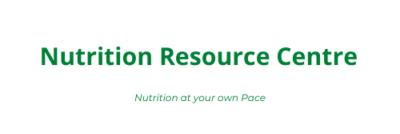Why Your Dietitian Wants You to Fill Out a Food Diary (And Why It’s Actually Worth It!)
We get it—food diaries can feel like a bit of a hassle. But trust us, when your dietitian asks you to fill one out, it’s for a really good reason! Whether you’re starting an elimination diet for IBS, undergoing food intolerance testing, or simply trying to track your eating habits, these diaries aren’t meant to be a chore. We genuinely use them to help you, and your health depends on it. So, here’s why we kindly (and enthusiastically) ask you to give it your best shot:
1. It Provides a More Accurate Picture of Your Eating Habits
Let’s be honest—most of us forget what we ate a few days ago, let alone remember every snack we’ve grabbed in passing. A food diary helps bridge those memory gaps, giving your dietitian a much clearer snapshot of your diet. Some people might only need to give us a quick rundown, but others require more detail. The better the picture we have, the better we can tailor our advice. Think of it like using the right tool for the job—no one wants to use a hammer to crack a nut!
2. It Helps Identify What’s Triggering Your Symptoms
If you’re following an elimination diet, tracking exactly what you eat and any symptoms you experience is crucial. Symptoms from trigger foods can show up anywhere from immediately to 72 hours later, and we need that info to play detective. Without a detailed food and symptom diary, we’d be relying on guesswork—hardly the best approach when it comes to your health! If things aren’t improving, we can use your diary to spot what’s not working and adjust your plan.
3. We Spot Patterns in Your Eating
No, we’re not here to judge! We’re looking for patterns in how food fits into your life—whether it’s meal timing, stress-eating, or skipping meals. Being honest in your diary gives us the info we need to understand your unique eating habits and how they affect your health. So, just write it all down, no filter needed!
4. We Base Our Advice on Science, Not Just Chat
While it might seem like we’re just talking about food, there’s real science behind our recommendations. We’re quietly calculating things like energy intake, macronutrients, and vitamin levels in our heads as we review your diary. A well-filled-out food diary lets us give you precise, evidence-based advice in an easy-to-understand way. The more detailed your record, the better we can support your nutritional needs.
5. It’s Insightful for You Too
Surprisingly, many people discover a lot about their own eating habits once they see it laid out in black and white. A food diary isn’t just for us—it’s a useful tool for you to better understand your diet and make more informed choices moving forward.
The Bottom Line
Not all dietitians will ask for a food diary, but if we do, it’s not without purpose. We’re not trying to add extra work to your life—we’re trying to help you in the best way possible! If you ever feel stuck or unsure how to fill it out, don’t hesitate to ask for help. We’re here to guide you through it. (In our Recharge Program, we ask you to complete a diet inventory in week 1. We’ll provide some food diary examples as well).
